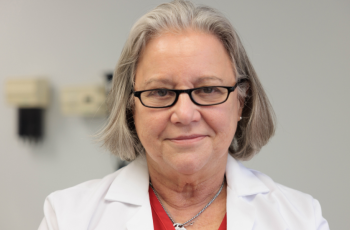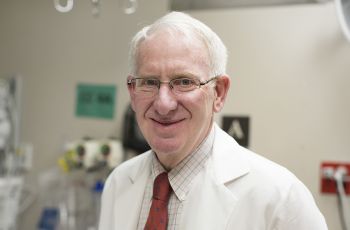Featured News
November is National Diabetes Awareness Month. Roughly 37 million Americans, including children and adults, experience either type 1 or type 2 diabetes, and the disease can affect almost every part of the body, including the eyes, kidneys, nerves, and heart, and diabetes can even cause some types…
Adam Friedman, MD, Professor & Chair of Dermatology, is featured in an article about If patients can't fill prescriptions for the daily pill quickly, they may lose the hair they've regrown on NBC Health News.
October is Breast Cancer Awareness Month, and according to the National Breast Cancer Foundation, thanks to early detection and advanced treatment the five-year survival rate for patients is 99%. Recently, Rachel Brem, MD, vice chair of radiology and director of the George Washington University (GW…
Adam Friedman, MD, Professor & Chair of Dermatology, is featured in an article about if the rash behind your knees is a psoriasis flare, plus what to do to clear it up on HealthCentral.com.
With the arrival of cooler mornings and pumpkin spiced lattes comes the annual sniffles, chills, and sneezes of flu season and a timely reminder that vaccines can protect you and your loved ones from the worst of what illnesses have to offer. Here, Janet C. Austen, CRNP-FNP, primary care family…
Jonathan Silverberg, MD, PhD, MPH, discusses the importance of considering racial disparities in the diagnosis and treatment of atopic dermatitis on Medscape.com
Adam Friedman, MD, Professor & Chair of Dermatology, is featured in an article about the impacts of weather on skin on HealthCentral.com.
Warmer months bring outdoor events, including cookouts, campfires, and fireworks displays, but they also bring the risk of burns. Robert Shesser, MD, MPH, chair and professor of the Department of Emergency Medicine at the George Washington University (GW) School of Medicine and Health Sciences,…
Jonathan Silverberg, MD, PHD, MPHS, talks about the exciting highlights of the Revolutionizing Atopic Dermatitis virtual conference on December 11.
May is Mental Health Awareness Month, and the pandemic, and even the slow process of a return to normal, has had significant consequences for our mental health. Recently, U.S. surgeon general, Vivek Murthy, MD, MBA, sounded the alarm on the growing epidemic of loneliness and isolation in the United…








